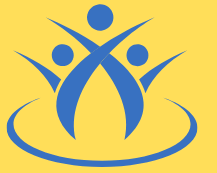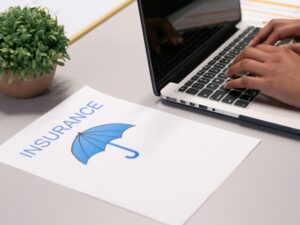If you are living, working, or studying in the Netherlands, you might have already noticed that health insurance is not only mandatory but also a significant monthly expense. To make healthcare more affordable, the Dutch government provides financial support known as the health insurance allowance Netherlands (in Dutch: zorgtoeslag).
This guide explains everything you need to know about the health insurance allowance in the Netherlands, including eligibility, how to apply, calculation methods, benefits, and tips to maximize your chances of receiving it.
What Is the Health Insurance Allowance Netherlands?
The health insurance allowance Netherlands is a government subsidy designed to help residents cover the cost of their mandatory Dutch health insurance (basisverzekering). It is managed by the Dutch Tax and Customs Administration (Belastingdienst).
The amount you receive depends on your income, assets, and household situation. Students, employees, freelancers, and even expatriates who qualify can benefit from this allowance.
Why Does the Netherlands Offer Health Insurance Allowance?
Healthcare in the Netherlands is of very high quality, but it comes at a price. The government requires everyone to purchase basic health insurance from a private insurer. To ensure affordability for lower and middle-income households, the zorgtoeslag system was created.
The allowance prevents people from being excluded from healthcare because of financial challenges, making the Dutch system both mandatory and fair.
Who Is Eligible for the Health Insurance Allowance Netherlands?
Eligibility for the health insurance allowance Netherlands depends on several conditions:
1. Residency and Age
-
You must be 18 years or older.
-
You must be registered as a resident in the Netherlands.
2. Valid Dutch Health Insurance
-
You must have Dutch basic health insurance (basisverzekering).
-
International or foreign insurance policies do not qualify.
3. Income Limits (2025 example)
-
Your annual income must not exceed around:
-
€37,500 for singles.
-
€48,000 combined for couples.
-
-
The exact limits are updated annually by the government.
4. Asset Limits
-
Your savings and assets must be below a certain threshold, usually around €140,000 for singles and €177,000 for couples.
5. Citizenship/Permit
-
Dutch citizens, EU/EEA residents, and non-EU residents with valid permits may qualify.
How Much Can You Receive?
The amount of health insurance allowance Netherlands you can get is calculated based on:
-
Your income.
-
Whether you have a partner.
-
The premium of your chosen health insurance policy.
Example (2025 figures – approximate):
-
Single person with low income: up to €154 per month.
-
Couples: up to €265 per month.
This means your health insurance costs can be significantly reduced, sometimes by half.
How to Apply for the Health Insurance Allowance Netherlands
Applying is simple, but it requires a DigiD (digital ID used in the Netherlands).
Step-by-Step Process:
-
Get a DigiD
-
Apply online at DigiD.nl.
-
-
Log into MyAllowance Portal
-
Go to the Mijn Toeslagen website.
-
-
Submit Application
-
Fill in your details: income, assets, health insurance information.
-
-
Wait for Confirmation
-
You will receive a letter or online notification from the Belastingdienst.
-
Pro Tip:
Apply as soon as you take Dutch health insurance. You can also request retroactive allowance for the previous year (under certain conditions).
Deadlines for Application
-
You can apply until September 1 of the following year.
-
Example: For 2025, you must apply before September 1, 2026.
Missing this deadline means losing the allowance for that year.
Common Situations and Questions
1. Can International Students Apply?
Yes, if you work part-time or do paid internships that make you liable for Dutch social security contributions. However, students with only foreign insurance (like EU EHIC cards) are not eligible.
2. What if I Lose My Job?
If your income drops during the year, you may qualify for higher allowance. Always update your income in the Mijn Toeslagen system.
3. Can Expats Receive the Allowance?
Yes, as long as you meet the residency, insurance, and income conditions. Expats working in the Netherlands often qualify.
How Is the Allowance Paid?
The allowance is paid monthly directly to your Dutch bank account by the Belastingdienst. You can also choose to have it paid to your health insurance provider.
How to Calculate Your Health Insurance Allowance
The government provides an online zorgtoeslag calculator at the Belastingdienst website.
You will need to input:
-
Your gross income.
-
Your partner’s income (if applicable).
-
Your age.
-
Health insurance policy details.
The calculator instantly shows your estimated monthly allowance.
Reasons Your Application Might Be Denied
-
Income or assets above the threshold.
-
Not having valid Dutch health insurance.
-
Providing incorrect income estimates.
-
Not being registered in the Netherlands.
If denied, you can appeal or update your application with correct information.
Benefits of the Health Insurance Allowance Netherlands
-
Affordability: Reduces the burden of high insurance costs.
-
Fairness: Ensures equal access to healthcare.
-
Flexibility: Adjusts to income changes.
-
Support for Expats and Students: Makes living in the Netherlands easier.
Tips to Maximize Your Allowance
-
Update Income Regularly Always provide accurate income estimates to avoid repayment requests later.
-
Apply Early Don’t wait until the deadline—apply as soon as possible.
-
Check Every Year Even if you didn’t qualify last year, income thresholds change yearly.
-
Use the Calculator Before applying, estimate your benefit online.
Impact of Income Fluctuations
The allowance is income-sensitive. If you earn more than expected, you might have to repay part of the allowance.
Example:
-
Estimated income: €25,000 → allowance: €120/month.
-
Actual income: €35,000 → reduced allowance: €50/month.
-
Result: repayment of excess amount at year-end.
FAQ: Health Insurance Allowance Netherlands (Zorgtoeslag)
The health insurance allowance Netherlands (zorgtoeslag) is one of the most common subsidies provided by the Dutch government, yet many people—students, expats, and even long-term residents—are often confused about how it works. Below, we’ve gathered the most frequently asked questions and provided detailed answers so you can understand everything about this important allowance.
1. What is the health insurance allowance Netherlands?
The health insurance allowance Netherlands is a monthly financial contribution from the Dutch government that helps residents pay for their mandatory basic health insurance (basisverzekering). It is managed by the Dutch Tax Authority (Belastingdienst). The purpose of the allowance is to make healthcare affordable for low- and middle-income households.
2. Who can receive the health insurance allowance?
You may qualify if:
-
You are 18 years or older.
-
You live in the Netherlands and are registered at a Dutch address.
-
You have valid Dutch basic health insurance.
-
Your income and savings are below the set thresholds.
-
You are a Dutch citizen, EU/EEA citizen, or non-EU resident with a valid residence permit.
3. How much can I receive each month?
The amount depends on your income, assets, and household situation. For example:
-
A single person with a low income may receive up to €154 per month.
-
Couples can receive up to €265 per month combined. The exact figures change each year, so always check the official Belastingdienst website.
4. How do I apply for the health insurance allowance Netherlands?
You can apply online via the Mijn Toeslagen portal using your DigiD. The application requires information about your income, health insurance policy, and household situation. Once approved, you’ll start receiving monthly payments directly to your Dutch bank account.
5. What is DigiD, and do I need it?
Yes, you need a DigiD to apply. DigiD is a secure digital ID used for government services in the Netherlands. You can request it online at DigiD.nl.
6. Can I apply retroactively?
Yes. If you were eligible in the past but didn’t apply, you can still apply retroactively until September 1 of the following year. For example, for 2025, you must apply by September 1, 2026.
7. Do international students qualify?
It depends. Students with only foreign insurance (like an EHIC card) do not qualify. However, if you are an international student with a paid job or internship that makes you liable for Dutch social security, you must take Dutch health insurance and then you may qualify for the allowance.
8. What if I am unemployed?
Yes, you can still receive the allowance if you are unemployed, as long as your income is below the threshold and you maintain Dutch health insurance.
9. What are the income limits?
The limits change yearly. As a rough guideline:
-
Singles: up to €37,500 gross annual income.
-
Couples: up to €48,000 combined gross annual income. If your income is higher, you won’t qualify.
10. What are the asset (savings) limits?
You cannot have too much in savings or assets. For example:
-
Singles: about €140,000.
-
Couples: about €177,000. These figures also change yearly.
11. How is the amount calculated?
The allowance is calculated based on:
-
Your gross annual income.
-
Your partner’s income (if applicable).
-
The cost of your chosen health insurance premium. The lower your income, the higher the allowance.
12. How do I know how much I will get?
You can use the zorgtoeslag calculator on the Belastingdienst website. Input your income and household details to see an estimate of your monthly benefit.
13. How is the allowance paid?
The allowance is paid monthly directly to your Dutch bank account by the Belastingdienst. You may also choose to have it sent to your health insurer.
14. Do I need to reapply every year?
No. If you already receive the allowance, it automatically continues into the next year. However, you must update your details if your income, partner status, or address changes.
15. What happens if my income changes during the year?
If your income increases or decreases, you must update your information in the Mijn Toeslagen portal. If you don’t update, you may have to repay money later if you received too much.
16. What if I earn more than I estimated?
If your final income is higher than what you declared, your allowance will be recalculated. You may need to repay the excess at the end of the year.
17. What if I earn less than expected?
If your income is lower than estimated, you may be entitled to more allowance. The Belastingdienst will adjust your final calculation and may pay you the difference.
18. What if I move abroad?
If you move outside the Netherlands, your entitlement to the health insurance allowance Netherlands usually ends unless you are temporarily abroad but still considered a Dutch resident. Always inform the Belastingdienst of any move.
19. Can expats and foreign workers apply?
Yes. As long as you live in the Netherlands, have Dutch health insurance, and meet the income and asset requirements, you can apply. Many expats qualify and benefit from this allowance.
20. What if I have a partner?
If you have a toeslagpartner (allowance partner), your incomes are combined. This could reduce the amount of allowance or make you ineligible if the combined income is too high.
21. Can both partners receive the allowance separately?
No. The allowance is calculated as a household benefit. The total is shared between you and your partner, but only one application is needed.
22. What are common reasons applications are denied?
-
Income too high.
-
Assets above the limit.
-
Not having Dutch health insurance.
-
Providing incorrect information.
-
Not being registered in the Netherlands.
23. Can I appeal if my application is rejected?
Yes. If you believe your application was wrongly denied, you can file an appeal with the Belastingdienst. Provide supporting documents such as proof of income or residence.
24. What if I cancel my health insurance?
If you cancel or lose your Dutch health insurance, you immediately lose your entitlement to the allowance. You must inform the Belastingdienst right away.
25. Can I get help applying?
Yes. You can visit a local Belastingdienst office, ask your health insurer for assistance, or get help from municipalities, student organizations, or expat services.
26. Do students need to apply separately?
Yes. If you’re 18 or older and qualify, you must apply on your own. Parents cannot apply on your behalf.
27. Is the health insurance allowance taxable?
No. The allowance is not considered taxable income. You don’t need to pay tax on it.
28. Can I stop receiving the allowance if I don’t want it?
Yes. You can cancel it at any time through the Mijn Toeslagen portal. Some people choose this if they expect higher income and want to avoid repayments.
29. What happens if I don’t apply before the deadline?
If you miss the September 1 deadline of the following year, you lose the right to claim the allowance for that year.
30. Why is the health insurance allowance important?
Without the health insurance allowance Netherlands, many residents with low or moderate incomes would struggle to afford health insurance. This system ensures healthcare remains accessible and fair for everyone.
Final Thoughts
The health insurance allowance Netherlands is an essential support system that makes healthcare costs manageable for residents. Whether you’re a student, expat, or local worker, understanding how it works can save you hundreds of euros per year. Always check your eligibility, update your income regularly, and apply on time to make the most of this benefit.
The health insurance allowance Netherlands (zorgtoeslag) is a crucial financial aid for residents struggling with healthcare costs. It ensures that everyone—students, workers, families, and expats—can afford quality Dutch healthcare.
By understanding eligibility rules, income thresholds, and application procedures, you can maximize your benefit and avoid unnecessary repayments.
So, if you are living in the Netherlands and your income falls within the required limits, don’t miss out on this valuable support. Apply today and make your Dutch healthcare more affordable!



